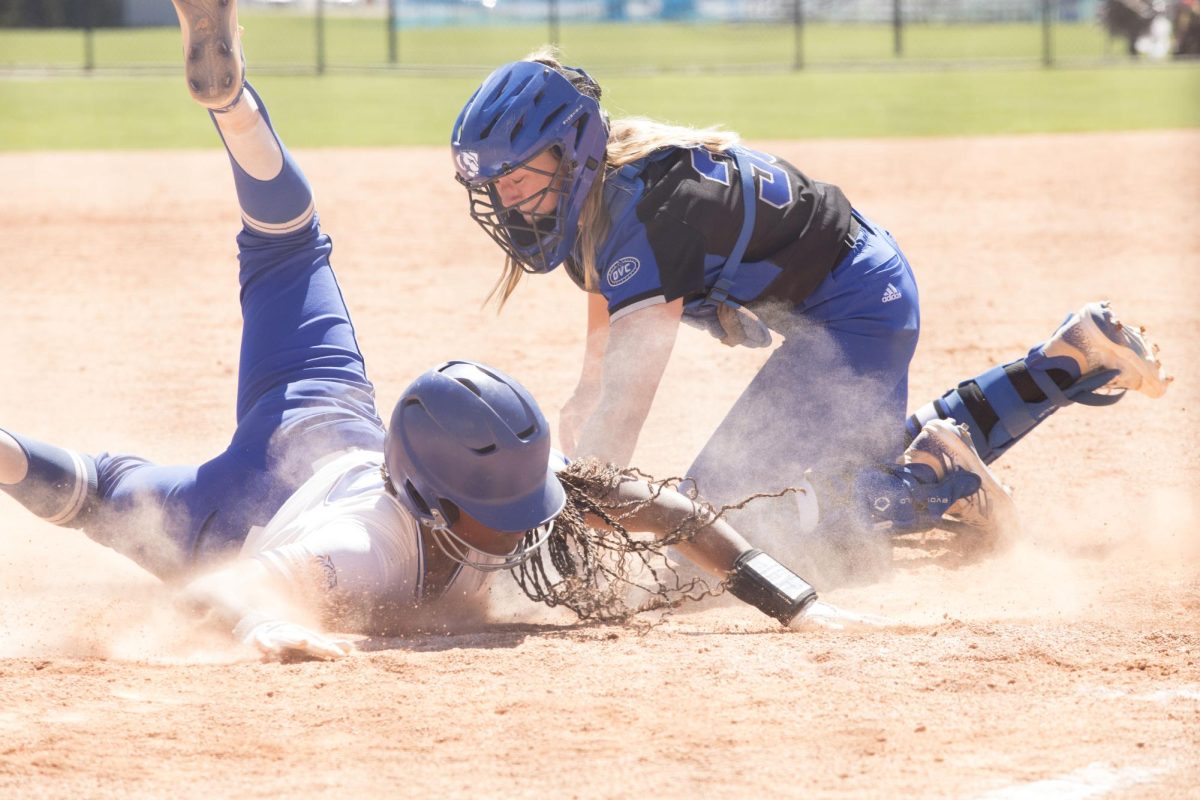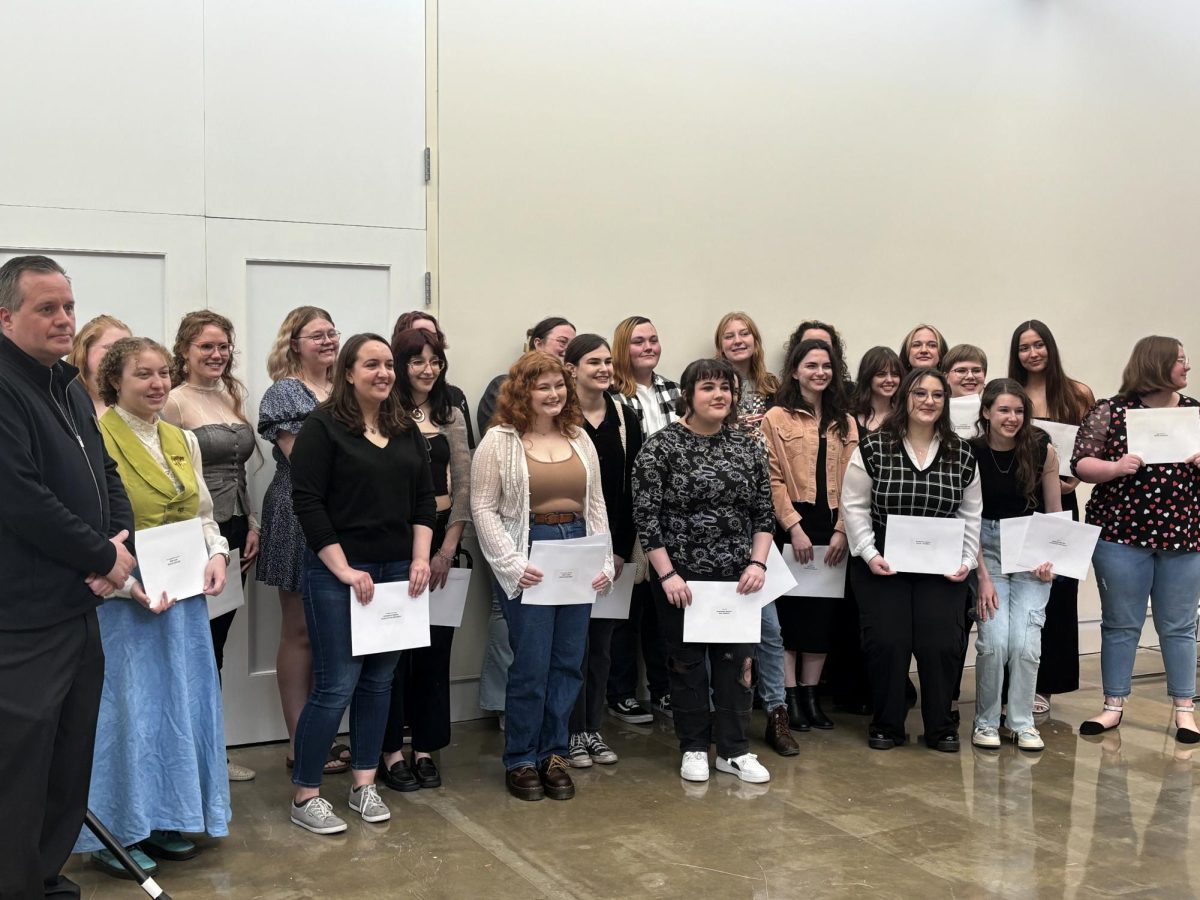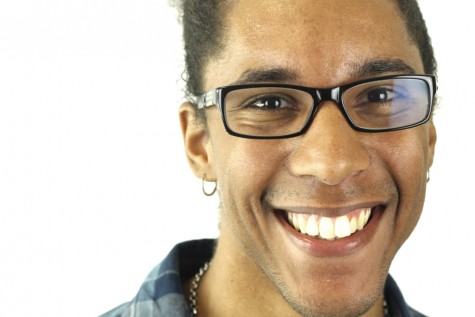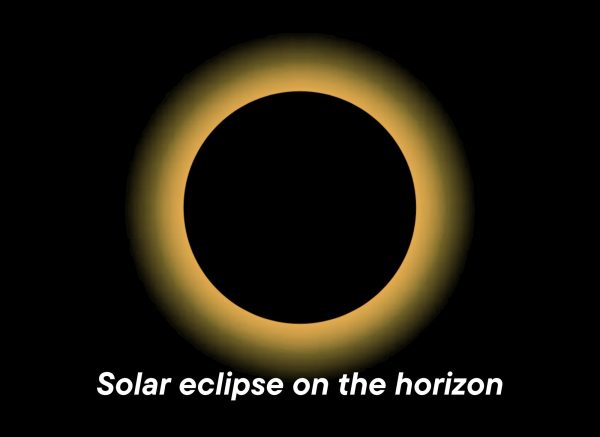Faculty members to study data from focus groups
September 14, 2014
Student-run focus groups within the Making Excellence Inclusive forum are searching for a company to transcribe data from studies about diversity and inclusion on campus.
Once the data is transcribed, faculty members from many of the departments within the College of Arts and Humanities will analyze it in order to combat some of the issues facing minorities.
Richard Jones Jr., professor of communication studies, and Linda Scholz, professor of communication studies, oversees the focus groups.
The groups help those in Making Excellence Inclusive, which is a forum created in order for faculty members to meet once a month and have an open-ended discussion about avoiding stereotyping and typecasting.
Ruben Quesada, professor of English, said the focus group’s overall goal is to help the Making Excellence Inclusive forum with determining needs and opportunities when it comes to matters of race, gender, sexual orientation and the overall culture of Eastern.
“MEI’s focus is on diversity, inclusion and equality,” Quesada said, “In order to fully understand how these areas need to be addressed at Eastern, we need to directly hear from students.”
Focus groups were held in the spring of 2014 about what students deal with in the classroom, on campus and in the overall Charleston community.
Even though Making Excellence Inclusive has the data, much of it needs to be transcribed, and they are in the process of finding organizations and companies to do that.
“The professors who set up the focus groups don’t have the resources to make the transcriptions and the university doesn’t have the resources to pay someone to do it,” Quesada said. “So the information is simply sitting there.”
Quesada said the forum is working on informing the Eastern-Charleston community that they are inclusive and all forms of diversity are important.
He said the group wants to promote an environment that has dignity and respect for everyone, which is why Quesada made a video of students and faculty from all backgrounds addressing issues related to inclusiveness and diversity.
“There is nothing wrong with acknowledging that someone is black, Latino, Asian, man or woman, gay or lesbian, of varying physically or mentally capacity,” Quesada said. “It starts by creating physical space and resources to better understand the experiences of all these people.”
Students should also know that coming to college will challenge them in many different ways and they should rise to such a challenge and prove to themselves and the community that they are ready to succeed no matter what, Quesada said.
Quesada said these discussions are important because they will allow faculty to begin thinking about how they treat their students and become more sensitive to how peers treat them as well.
He said the talks should make everyone aware of how they treat one another especially if they are from different backgrounds.
“I understand that historically this has been an institution with white, middle class students, but higher education is becoming less homogenous and we need to accommodate for that change if we’re to survive,” Quesada said.
Roberto Hodge (@Berto_Hodge) can be reached at 581-2812 or [email protected].


















































